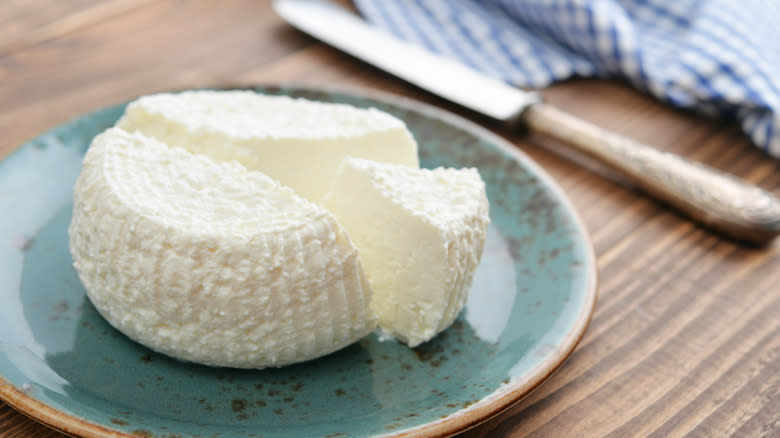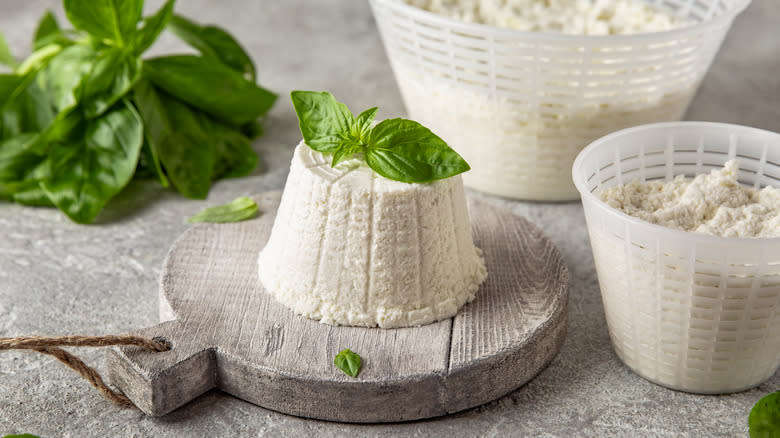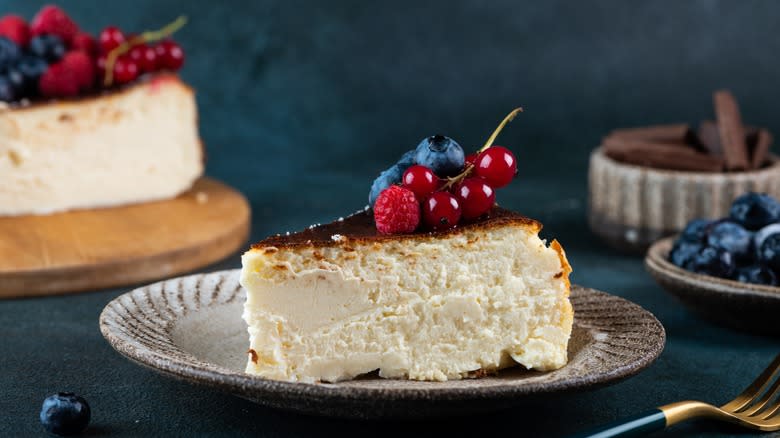Andra Picincu
·4 min read
With its rich texture and mildly salty and creamy flavor, ricotta cheese is not only a vital part of cannoli and lasagna, but can adda gourmet touch to cheesecakes, omelets, and crêpes. The only downside to this delicious cheese is that it's delicate, especially the good stuff (i.e. homemade or bought from a local producer). Its high moisture content can cause it to go bad in one or two weeks at maximum, or a mere two days for a homemade version.
Prolonging ricotta's shelf life by freezing it seems like an easy solution, but it changes drastically when frozen, which is again attributed toits high moisture content.Generally speaking, you should think twice about freezing cheese, and doubly so for fresh varieties like cream cheese or ricotta. Ricotta is about 74% water,and when that water transforms into ice, it disrupts the cheese's texture and makes it dry, crumbly, and slightly grainy.
It's still better to freeze the cheese than let it go to waste, but you won't be able to use thawed ricotta in the same way as the fresh stuff, such as in "raw" preparations like mousses, salads, or as a topping. The good news is that freezing it only requires a plastic bag or airtight container and a few minutes of your time. The thawed cheese will fare just fine when mixed into cooked dishes, so learning how to freeze it is a worthwhile endeavor.
ADVERTIsem*nT
Read more: 14 Liquids To Add To Scrambled Eggs (And What They Do)
The Proper Way To Freeze Ricotta Cheese
If you have an unopened container of ricotta, you can stick the whole thing right in the freezer, but if the package has been opened, you have to transfer the cheese to a new container.Use a clean, airtight container or freezer bag to prevent freezer burn and bacterial contamination. You can even freeze the cheese in ice cube trays and then transfer the cubes to a container, which makes for easier portioning when you want to use it in the future.If your freezer has a quick-freeze function, take advantage of it, because freezing the cheese as quickly as possible willreduce ice crystal formation.
Ideally, store the cheese in the back of your freezer, where the temperature is the lowest. The door of your freezer is a bit warmer and can fluctuate in temperature whenever you open and close it. Stored properly, fresh ricotta will last in the freezer for one to three months.
Once you thaw your cheese, it is not recommended to refreeze it. Since freezing it just oncealready causes the cheese to degrade somewhat, you can imagine what constant thawing and refreezing would do. The texture and quality of the cheese will deteriorate each time you freeze it, until it turns into a grainy, broken, separated mess. Repeated thawing also puts it at risk formicrobial growth that can cause foodborne illness.
Thawed Ricotta Cheese Is Ideal For Cooked Dishes
The best way tothaw frozen cheese is to leave in the refrigerator at 32 to 34 degrees Fahrenheit. Wait until your ricotta softens,and if it turns out watery, just stir it to improve its texture. From there, it will last for a couple days in the fridge, so get creative with ways to use it up.
Thawed ricotta is best used incooked dishes likepastas, baked goods, and casseroles. Thoroughly mixing it into batter for pancakes, cookies, cheesecakes, and pound cakes will disguise its altered texture most effectively.It can also be a delicious addition to scrambled eggsthat creates a richer taste and fluffy consistency. Or, use your thawed cheese inthesericotta-stuffed zucchini flowers, which are perfect for a light lunch or dinner.
Thawed ricotta can also be successfully used in dips, sauces, or salad dressings. Blending the cheese with other ingredients makes it hard to detect its slightly separated and grainy texture. Try mixing it with sour cream, yogurt, mustard, and other ingredients to create a dip for chips and veggies. Previously-frozen ricotta can also be a good choice for fritters, stuffed shells, and other dishes where its texture won't take center stage.
Read the original article on Daily Meal.


